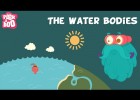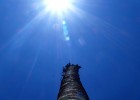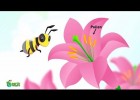Cargando...
Recursos educativos
-
Nivel educativo
-
Competencias
-
Tipología
-
Idioma
-
Tipo de medio
-
Tipo de actividad
-
Destinatarios
-
Tipo de audiencia
-
Creador
Lo más buscado
- Aparato reproductor femenino
- Carga positiva
- Proyectos escolares de quimica
- Siglo XVIII
- Verbo y predicado
- Centenas, decenas y unidades
- Estadística descriptiva
- Tic en el aula
- Razonamiento verbal
- Guía de consumo responsable
- Funciones
- Inglés-Lengua extranjera
- Oraciones impersonales
- Edgar Allan Poe
- Letras X
-

Picture Dictionary
EduBook Organización
- 1890 visitas
1.daughter 2.wife 3.son cat dog mouse garden flowers trees vegetables apple turnip (earth) seed morning night little/small big enormous call come cook eat grow help look at pull put into out of under
-

English Bites / Transit of Venus
Xtec Organización
- 1594 visitas
The transit of Venus is when the planet Venus crosses between the sun and the Earth. It doesn't happen very often, and it has been an important event in times gone past.
-

Oceanography Facts
V&V Books Vicens Vives Organización
- 1 lo usan
- 1493 visitas
Oceanography is also known as marine science, and is an earth science that includes the study of ocean ecosystems, ocean currents, waves, marine organisms, plate tectonics, and sea floor geology, and…
-

Final self-evaluation 2 - The Diversity of Life
EduBook Organización
- 1552 visitas
Match the beginning of each sentence with the correct ending. All of the Earth's ecosystems and their biodiversity... It is estimated that every year... If the current rate of extinction…
-

-

The Water Bodies | The Dr. Binocs Show | Educational Videos For Kids
V&V Books Vicens Vives Organización
- 1764 visitas
Learn about Water Bodies with Dr. Binocs. Hey kids! Do you know about the different water bodies on our planet Earth? Have you heard of rivers, lakes and oce...
-

ozone layer
V&V Books Vicens Vives Organización
- 1827 visitas
Encyclopedic entry. The ozone layer is one layer of the stratosphere, the second layer of the Earth's atmosphere. The stratosphere is the mass of protective gases clinging to our planet.
-

Why do we Need Bees?
V&V Books Vicens Vives Organización
- 2 lo usan
- 1150 visitas
Earth Ranger Jovanna chats with Dr. John Purdy to learn all about the importance of bees. Did you know that without bees as pollinators, we would have a hard...
-

Picture Dictionary
EduBook Organización
- 1470 visitas
1.daughter 2.wife 3.son cat dog mouse garden flowers trees vegetables apple turnip (earth) seed morning night little/small big enormous call come cook eat grow help look at pull put into out of under
-

Check what I know
EduBook Organización
- 1288 visitas
Answer true or false: The Moon orbits the Earth in 40 days. → The Moon's surface is covered with lava. → The large black spots on the Moon are called seas. →
Te estamos redirigiendo a la ficha del libro...











